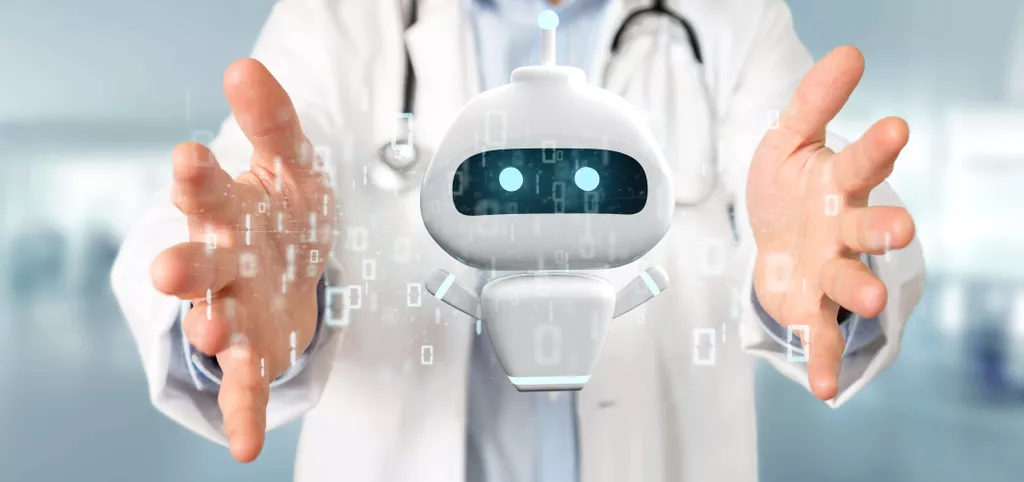
One of the most often performed tasks in the healthcare sector is scheduling appointments. A well-designed healthcare chatbot can plan appointments, based on the doctor’s availability. A well-designed healthcare chatbot can plan appointments, based on the doctor’s availability. The healthcare industry is constantly evolving to meet its customers’ needs. These computer programs, which use artificial intelligence to automate customer service, make it easier for medical providers and patients to communicate. AI chatbots can also facilitate communication between healthcare professionals and patients, leading to improved coordination.
- We are Microsoft Gold partner with its presence across the United States and India.
- This can be especially beneficial for patients with urgent questions or concerns outside regular business hours or those in different time zones.
- The use of chatbots in healthcare has proven to be a fantastic solution to the problem.
- Today there is a chatbot solution for almost every industry, including marketing, real estate, finance, the government, B2B interactions, and healthcare.
- Healthcare chatbots allow patients to monitor their treatment by actively interacting with the bot at any time, including monitoring indicators and maintaining an electronic medical record.
- A chatbot in healthcare can be used to schedule appointments with doctors or other medical professionals.
Moreover, integrating RPA or other automation solutions with chatbots allows for automating insurance claims processing and healthcare billing. This free AI-enabled medical chatbot offers patients the most likely diagnoses based on evidence. The bot also provides useful health advice and information about medicines, service providers, and doctors and is compatible with all popular platforms. In the past few years, 10,000 to 20,000 apps have stampeded into the mental health space, offering to “disrupt” traditional therapy.
Enhancing the patient experience
The focus will be on cancer therapy, with in-depth discussions and examples of diagnosis, treatment, monitoring, patient support, workflow efficiency, and health promotion. In addition, this paper will explore the limitations and areas of concern, highlighting ethical, moral, security, technical, and regulatory standards and evaluation issues to explain the hesitancy in implementation. Chatbots are going to transform the traditional ways of patient engagement and care. HealthTap, Inc., with headquarters in California, operates an online platform that connects people seeking health information with a network of doctors who can answer their questions. Over 6,000 physicians and 600 healthcare institutions are part of this health network. Medical students can review health questions and craft personalized responses.
According to Business Insider Intelligence, up to 73% of administrative tasks (e.g., pre-visit data collection) could be automated with AI. With the recent tech advancements, AI-based metadialog.com solutions proved to be effective for also for disease management and diagnostics. ScienceSoft’s healthcare IT experts narrowed the list down to 5 prevalent use cases.
Chatbot History and Evolution
As researchers studying the design and creation of medical chatbots, we expect that ChatGPT will be able to evolve into a reliable and practical medical chatbot. Here, we would like to explore some obstacles to the achievement of this goal and potential solutions to them, by considering ChatGPT as a disruptive technology. The chatbot needs to understand natural language and respond accurately to user inquiries.
- They can provide faster and more accurate answers to common questions, automate simple tasks, and proactively offer relevant advice to patients.
- This is helpful in IDing side effects, appropriate dosages, and how they might interact with other medications.
- Advanced medical bots are programmed so that each subsequent question depends on the answer to the previous one.
- In addition to bringing new leads, these chatbots can help you make the best business decisions at the right moment.
- Don’t tell anyone I said this, but a lot of what healthcare workers do is already a bit formulaic — at least at the lowest-level, patient-facing interface.
- Patients may sustain serious injuries or even pass away if the AI chatbot is unable to comprehend the exact situation.
Essentially, medical chatbots should have a set of distinctive capabilities to ensure the required service level and accuracy, which is critical to the industry. These features may include voice assistance, a knowledge center, appointment scheduling, a 24/7 presence, and much more. Chatbots have access to sensitive information, such as patient’s medical records. Chatbots must therefore be designed with security in mind, incorporating features such as encryption and authentication. Though chatbots that provide mental health assistance are limited in their services, they can still be very beneficial to those who need them.
Data-Reliant
Our chatbots have the ability to examine responses and give them an immediate response to their question. Using a healthcare chatbot makes it easy to collect patient reviews with a couple of questions. Such an unobtrusive feedback channel allows patients to evaluate the quality of the clinic’s service, assess medical services, or leave a detailed review of services. This helps to improve service levels without wasting customers’ time talking to the operator. The problem with chatbots in healthcare is that doing simple activities and answering basic queries no longer delivers a satisfying user experience.
How are chatbots used in healthcare?
Chatbots for healthcare allow patients to communicate with specialists using traditional methods, including phone calls, video calls, messages, and emails. By doing this, engagement is increased, and medical personnel have more time and opportunity to concentrate on patients who need it more.
The next classification is based on goals with the aim of achievement, subdivided into informative, conversational, and task based. Response generation chatbots, further classified as rule based, retrieval based, and generative, account for the process of analyzing inputs and generating responses [16]. Finally, human-aided classification incorporates human computation, which provides more flexibility and robustness but lacks the speed to accommodate more requests [17]. For medical diagnosis and patient triage, Infermedica employs the best artificial intelligence. The AI healthcare chatbot is based on a symptom-checker chatbot called Symptomatic. It asks questions and uses historical medical knowledge to understand the user’s medical conditions.
2. Human doctors vs. AI doctors
As a patient-oriented tool, it would allow users to obtain disease-related information or book medical appointments (Bates, 2019; Khadija et al., 2021). Despite the saturation of the market with a variety of chatbots in healthcare, we might still face resistance to trying out more complex use cases. It’s partially due to the fact that conversational AI in healthcare is still in its early stages and has a long way to go.
Study shows AI chatbot provides quality and empathetic answers to … – News-Medical.Net
Study shows AI chatbot provides quality and empathetic answers to ….
Posted: Sun, 14 May 2023 07:00:00 GMT [source]
Preventative measures of cancer have become a priority worldwide, as early detection and treatment alone have not been effective in eliminating this disease [22]. Physical, psychological, and behavioral improvements of underserved or vulnerable populations may even be possible through chatbots, as they are so readily accessible through common messaging platforms. Health promotion use, such as lifestyle coaching, healthy eating, and smoking cessation, has been one of the most common chatbots according to our search. In addition, chatbots could help save a significant amount of health care costs and resources. Newer therapeutic innovations have come with a heavy price tag, and out-of-pocket expenses have placed a significant strain on patients’ financial well-being [23]. With chatbots implemented in cancer care, consultations for minor health concerns may be avoided, which allows clinicians to spend more time with patients who need their attention the most.
Building a better future for healthcare: AI Chatbots collaborating with humans
Let’s dive into some of these advantages and see how healthcare chatbots are changing the game. If you’re looking for inspiration, here are a few examples of chatbots successfully providing healthcare services today. This allows your chatbot to screen patients early and sort out the ones who need urgent care from those who can do with self-care. Your can offer an improved patient recovery support giving them necessary medical and nutritional recommendations based on their vital stats and health goals. These automated conversations allowed them to self-diagnose, schedule tests, book appointments, and manage their treatments in real time. It proved that a medical chatbot could serve as a virtual nurse while sitting in your pocket.
Non-Profit Helpline Shifts To Chatbots, Then Shuts Down Rogue AI – Forbes
Non-Profit Helpline Shifts To Chatbots, Then Shuts Down Rogue AI.
Posted: Thu, 01 Jun 2023 07:00:00 GMT [source]
What is the best AI for medical questions?
Google has built the best artificial intelligence yet for answering medical questions. The Med-PaLM AI can answer multiple-choice questions from medical licensing exams and common health queries on search engines with greater accuracy than any previous AI and almost as well as human doctors.













Θέλεις να μαθαίνεις πρώτος τα πάντα για το Μουντιάλ;
Κάνε like στη σελίδα του Mountial.gr στο Facebook
Ακολούθησε το Mountial.gr στο Instagram
Εντάξου στο μεγάλο chat του Telegram